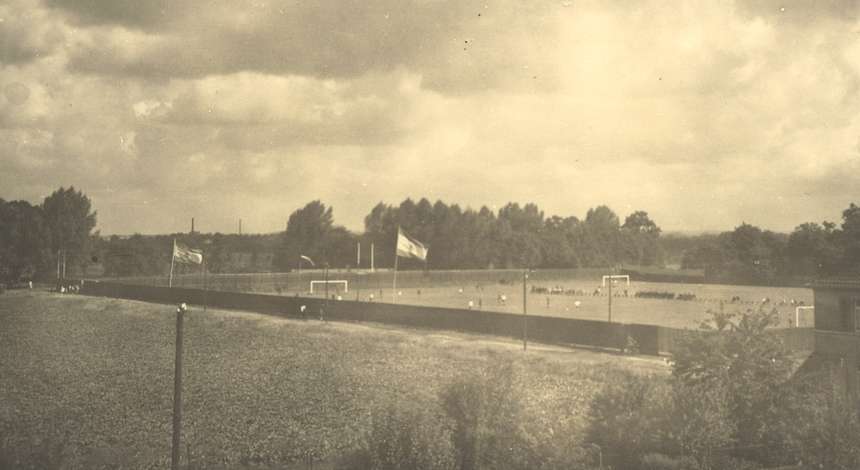
“1,200 spectators yesterday witnessed a battle for the title, in the truest sense of the word, at the pitch on Hemmelrather Weg. A battle from the first to the last minute … even if played unfairly at times, and that is part and parcel of it. The referee definitely knew when to step in at the right moment. The Opladen team played well even though their forwards could not score more goals but this was not due to their inability but rather the outstanding work by the Leverkusen goalkeeper. Opladen were particularly on top in the second half with the exception of the first ten minutes and the final attacks. The hosts could certainly say they were lucky to get a point. All the visitors players stuck to their tasks and defended well with good cover particularly in the first half. The halfbacks, namely Schlemper and Kauter, again and again drove their attack forwards and worked so hard in midfield that the team from the paint town were unable to break through. There was harmonious cooperation in the attack even if some things went astray at times.
Leverkusen’s best player was the goalkeeper König, the defence were on their toes and the halfbacks also worked hard. The build-up play left something to be desired at times, the crosses lacked accuracy and were hit too high. The forwards were satisfactory in the first half. Peckhaus stood out as the centre forward. The hosts had the slight advantage in the first half, some good chances were missed and, by contrast as mentioned above, the visitors had the best of the second half. According to the flow of the game, Opladen should have won but defending is also a skill at the end of the day. Let’s take a closer look key moments in the game:
Leverkusen were slightly on top in the first 15 minutes. Peckhaus missed once and the ball went over the bar shortly after that. A corner was cleared then the opposite end, König made a number of saves. The Opladen attack did not really get going and they got tied up in their own moves. Opladen then came into the game, the centre forward passed to the inside right and he scored the first goal with a shot that left König with no chance. Leverkusen did not give up, were courageous in attack but were unable to score before half-time.
Leverkusen applied heavy pressure from the start of the second half. A solo run by Dickbrenner led to a corner. Taken by the same player, the ball landed in the back of the net. Kauter wanted to clear but he only succeeded in putting the ball over the line (it was not his fault). Then it was over for Leverkusen, Opladen were on top with one shot after the next… into the hands of the Leverkusen keeper now … no, against the bar! Then Steinacker is unmarked by the post. The hosts had to survive some long and worrying minutes but the visitors do not manage to do anything and, with a minute to play, the home team can secure victory with Dickbrenner having the ball unmarked in front of goal… but he puts it over the bar. That, gentlemen, is followed by the final whistle. The points are shared between the brothers.”
That was a report from the 1930s. Very authentic, sometimes with a very barbed style, also thoroughly critical and always on the ball. And derby matches were played by brothers back then.
Related News
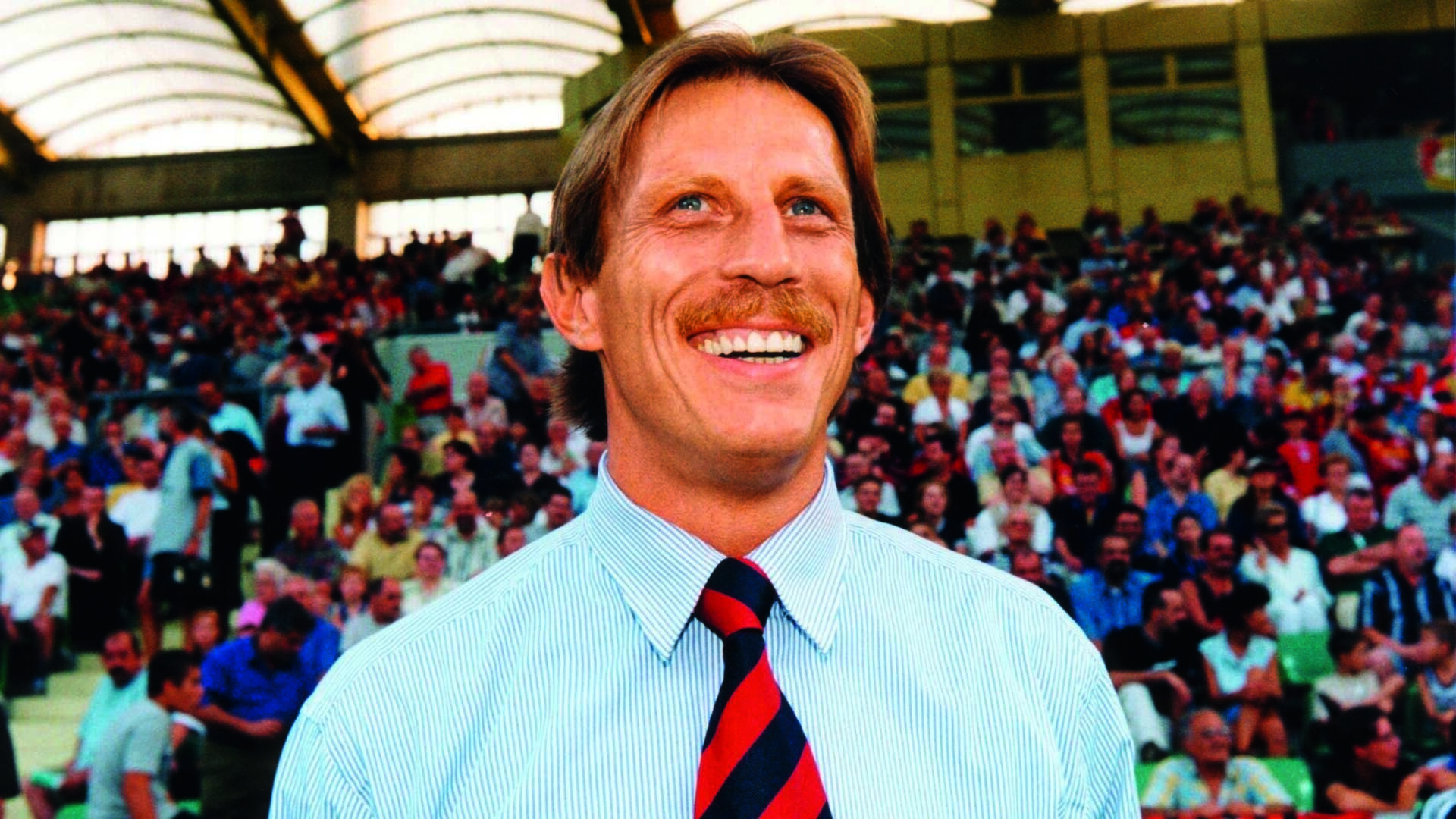
Legend: Christoph Daum - The man who taught us to want
Christoph Daum was born on 24 October 1953 in Zwickau. As a child, he moved to West Germany with his mother and grew up in Duisburg. He developed a great enthusiasm for football at an early age, even though it soon became clear that his future lay less on the pitch than on the sidelines. Even at a young age, his passion for analysing, explaining and improving things became apparent.
Show more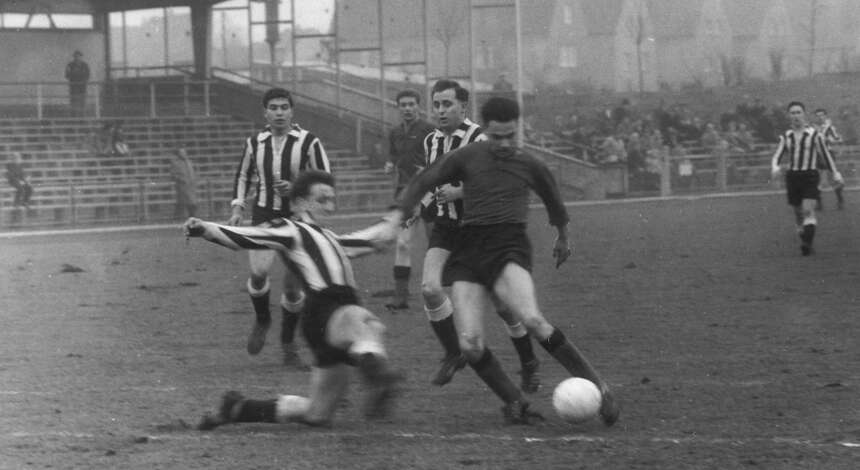
From the archives: 65 years ago - Another victory at last
When the Bayer 04 players celebrated Christmas in 1960, they spent the winter in second place in the Oberliga West 2 on 20 points - but already five points behind leaders Schwarz-Weiß Essen. However, coach Erich Garske's team are struggling to get back on track in the new year. A goalless draw against Bonner FV at home at the Ulrich Haberland Stadium was followed by a 2-1 away defeat in Erkenschwick. The following home game also yielded just one point. As a result, the team's promotion ambitions dwindled to a minimum, as the gap to the coveted spot has now grown to a challenging ten points.
Show more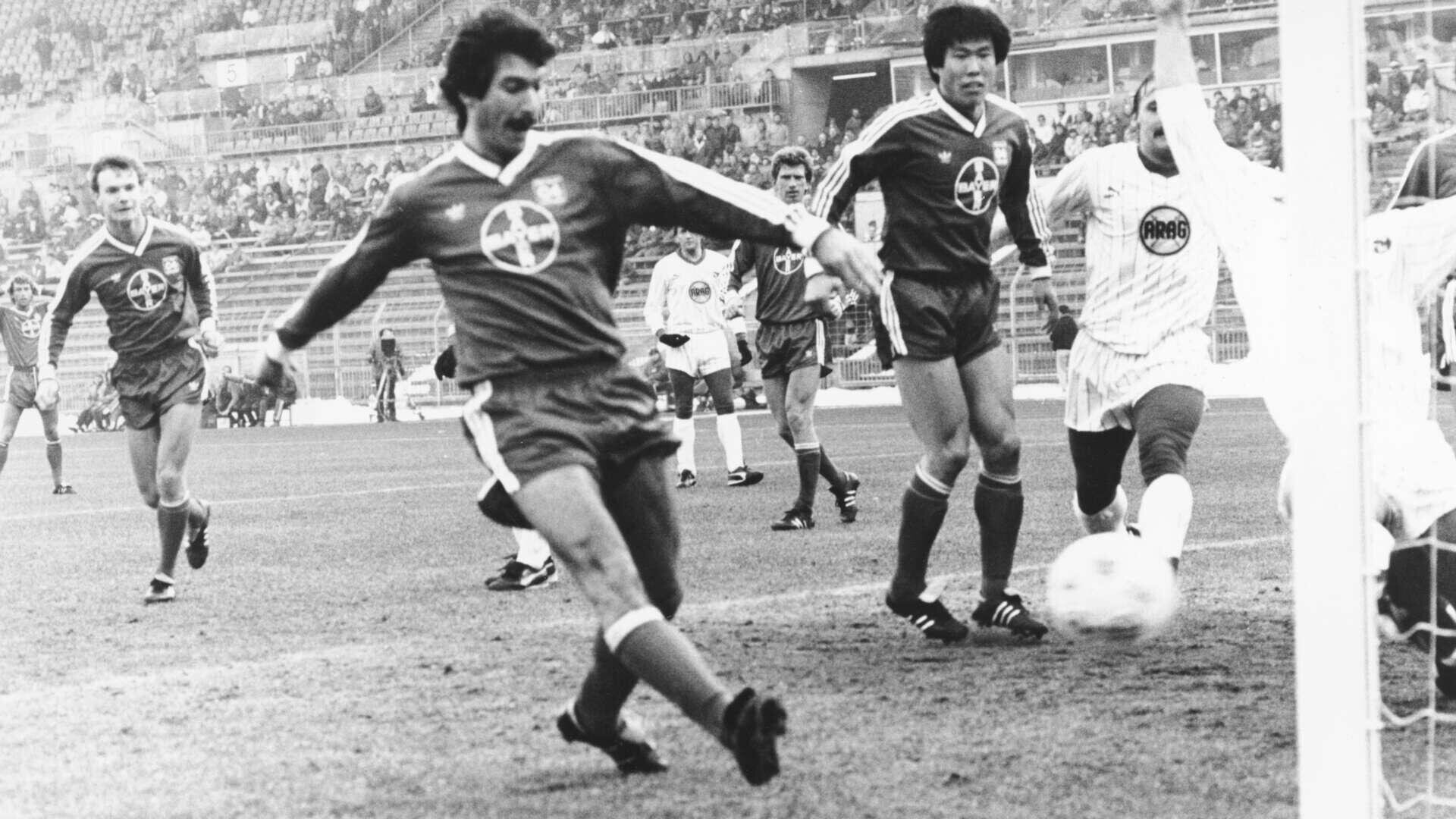
Goals of the month: From Waas to Tapsoba
In this video you can see impressive and important goals in Bayer 04 history from the month of February. It's not always about the beauty of the goals, but also a reminder of special games and players.
Show more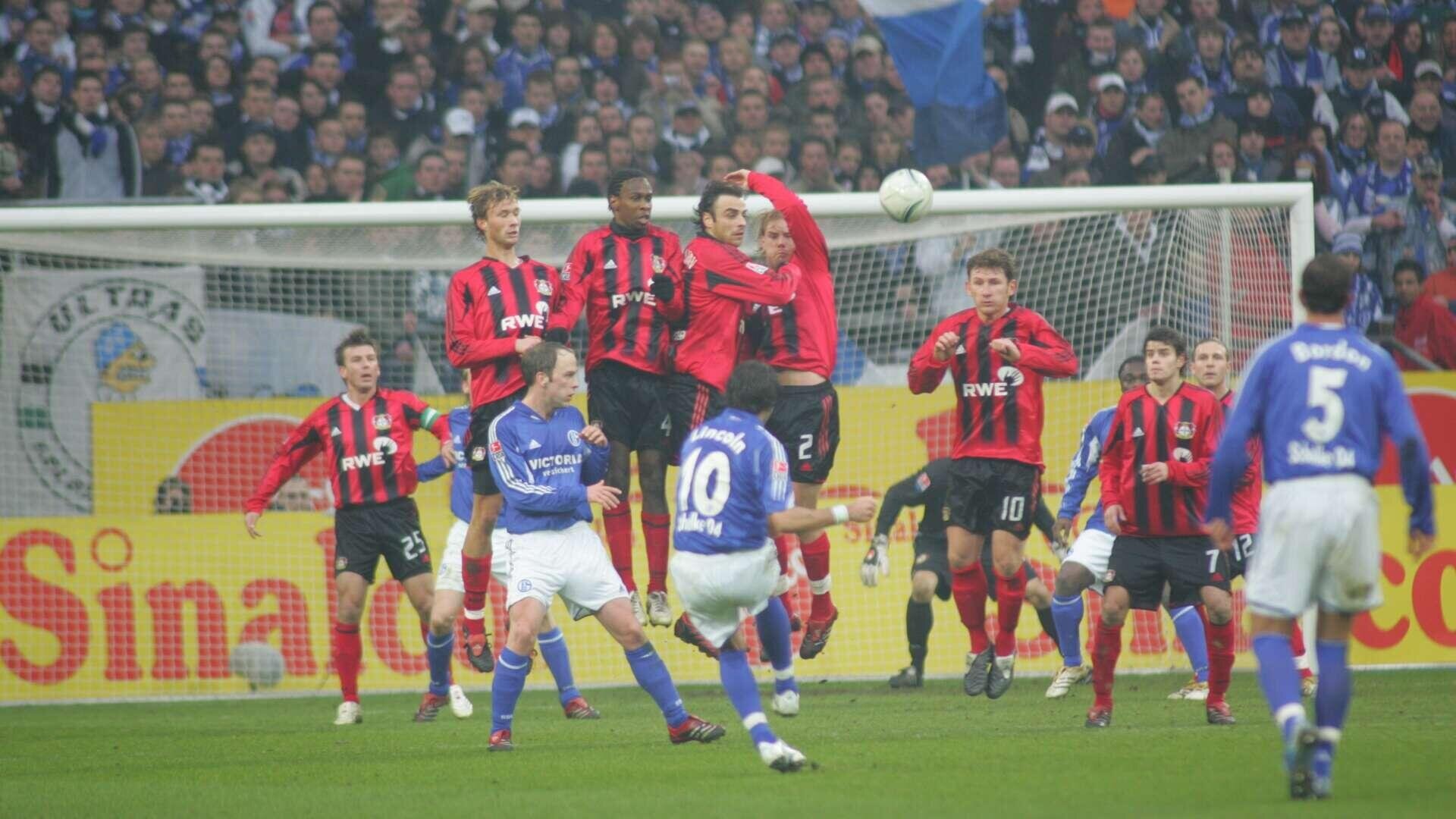
Match of the month: 20 years ago - A game of goals galore
It is 11 February 2006 and Schalke 04 and the Werkself kick off at 3.30 p.m. in a match that ends up being historic - at least from a Bayer 04 perspective.
Show more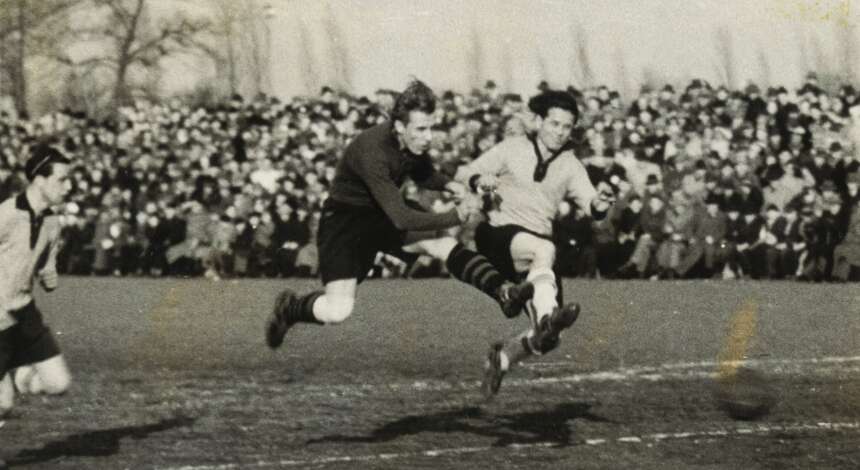
History: 75 years ago - The 1950/51 season (February)
As league leaders, the Werkself welcomed the relegation-threatened team from Rhenania Würselen. On 4 February 1951, 5,000 spectators line the touchlines despite the Sunday carnival parades. And they see a home team that is superior on the pitch. Without Theo Kirchberg, who was ill, and Emil Becks, who was suspended, the hosts attacked the opposing goal from the start. Battling against a strong wind in the first half, Bayer 04 created chance after chance, but were repeatedly thwarted by the Würselen goalkeeper. With the score at 0-0 at half-time, Karl Heinz Spikofski tried his luck on 55 minutes and hammered the ball into the opposition net from 20 metres out. Rhenania can no longer counterattack. The siege of the Würselen penalty area continued right to the end, but the game ended in a narrow 1-0 win.
Show more